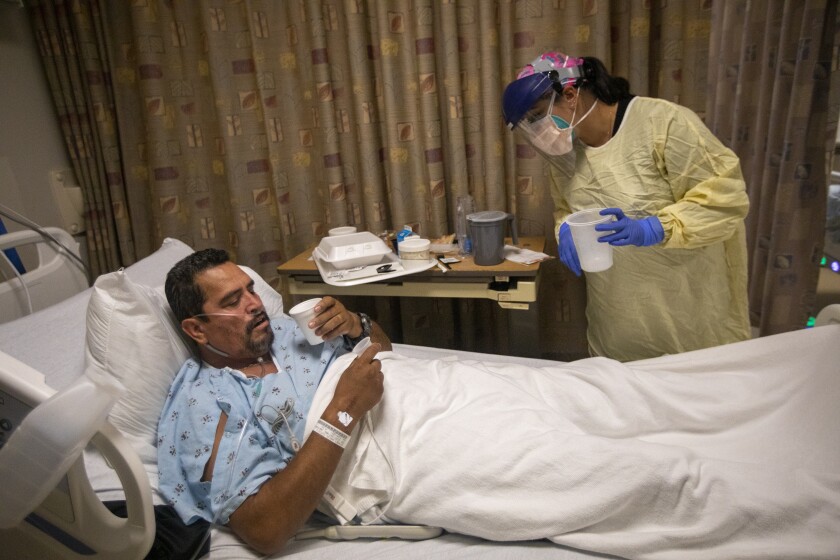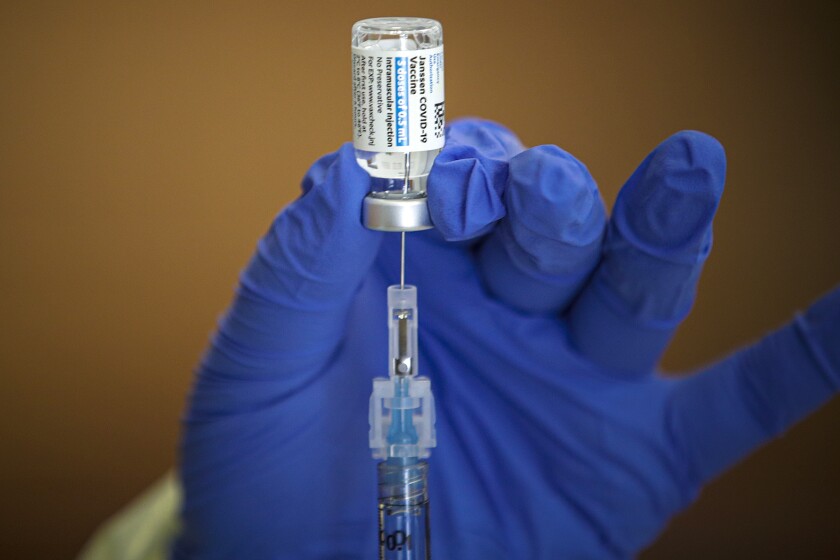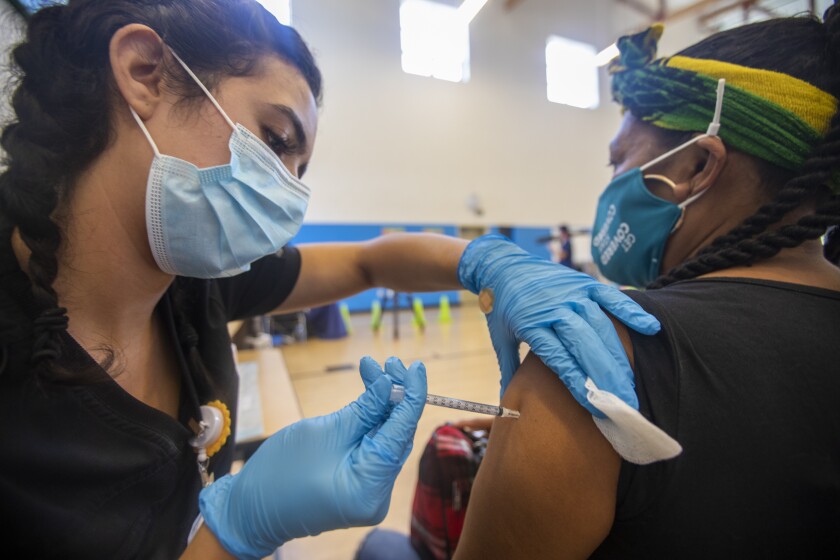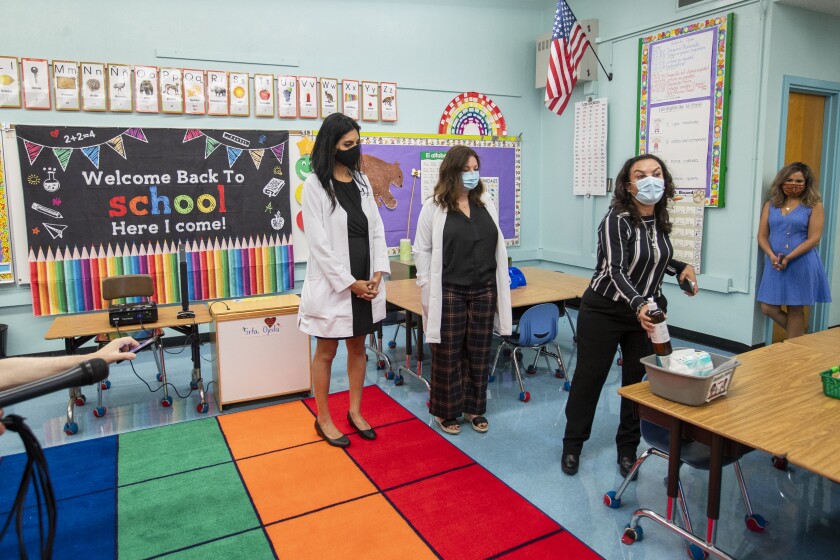L.A. moves toward vaccine requirement for indoor restaurants, stores, gyms, bars
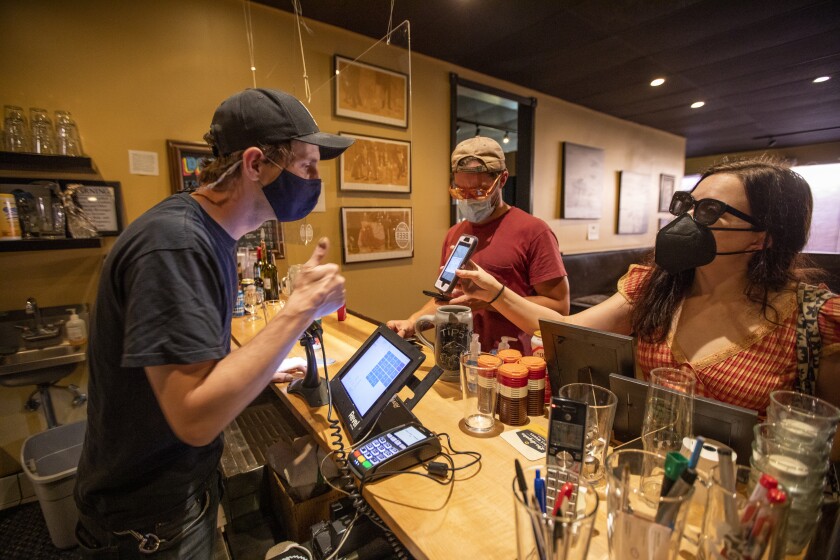
Los Angeles took a step Wednesday toward requiring people to have at least one dose of a COVID-19 vaccine before venturing into indoor restaurants, bars, gyms, shops, movie theaters and other venues.
The City Council voted to direct city attorneys to draft the law, though much of the plan remains to be worked out, including precisely where it would apply and how the new rules would be enforced.
Once the ordinance is drafted, it goes back to the City Council for final approval.
“You not being vaccinated actually impacts the health of everyone else,” said Council President Nury Martinez, “so [the] argument that you have the right to not access the vaccine or get vaccinated just doesn’t work anymore.”
The proposal was announced last week by Martinez and Councilman Mitch O’Farrell, who argued that it would protect people in public places as COVID-19 cases surged.
Although characterizing the move as an effort to protect general public health, O’Farrell said it was “not a vaccine mandate.”
“We’re not going to tell someone, anyone, that they have to get vaccinated,” he said. “We’re also not going to deny anyone the ability to access essentials — food, medicine, etc. — regardless of vaccination. That wouldn’t be legal, that wouldn’t be moral. But what is immoral is choosing not to get vaccinated, choosing to listen to some delusional rant on Twitter. This is real life. Vaccines work.”
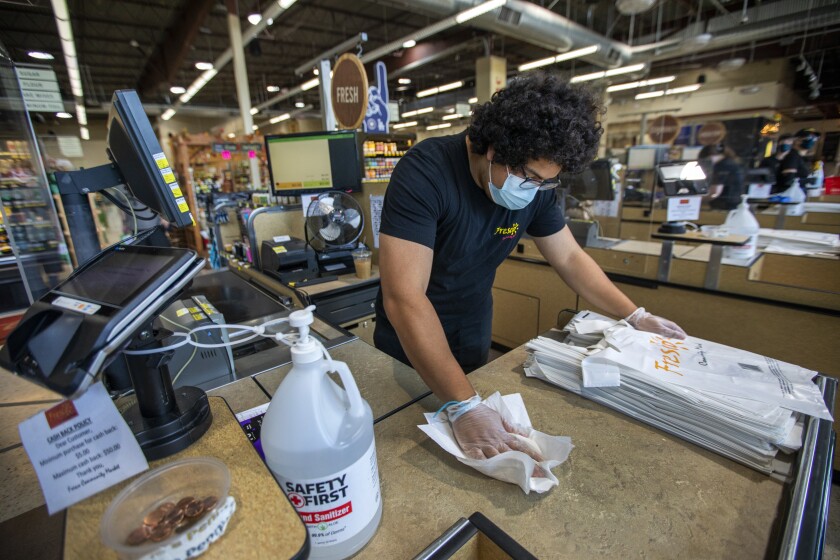
As part of their 13-0 vote, council members directed city staff to gather input from businesses and business groups on what specific types of public spaces should ultimately be included in the draft ordinance, and also to meet with parents, teachers, pediatricians and child-care providers to discuss how best to protect children under the age of 12, who remain ineligible to receive the vaccine.
COVID-19 hospitalizations have essentially doubled across much of California over the past two weeks — a troubling trend officials say illustrates the pandemic’s continued potency amid an ongoing surge in infections.
Business and restaurant industry groups have shown openness to the idea.
Jot Condie, president and CEO of the California Restaurant Assn., said in a statement that “if asking patrons for proof of vaccination in indoor public spaces can help us all avoid more shutdowns, massive layoffs, and operating limits, then we will do everything we reasonably can to assist” the effort.
The L.A. Area Chamber of Commerce said business input would be crucial to rolling out any such mandate.
United Food and Commercial Workers Local 770, which represents more than 30,000 workers, including grocery store employees, welcomed the measure, saying its members had endured high rates of COVID-19 infection, “anti-maskers and anti-vaxxers, lack of on-site testing and social distancing, poor contact tracing” and other threats.
It urged the city to make sure that the ordinance included a trained “health and safety officer” for each retail site.
“It is impossible for retail workers to maintain the store inside and enforce the vaccine requirement outside,” union President John M. Grant wrote in a letter to council members. “Too often companies push the burden of enforcement onto their employees, who are already understaffed.”
Some opponents wrote to council members denouncing the plan as overreaching, including people who dismissed the COVID-19 pandemic as a hoax or argued that the vaccines were harmful. Many raised concerns about the emergency authorization for the shots or argued that breakthrough infections undermined the case for vaccines.
“What you are proposing is just a way to punish people who aren’t vaccinated,” one letter writer argued. “This is absolutely unscientific and unnecessary.”
Council members, however, pointed out that the personal decision to get vaccinated could ripple far beyond the person making that choice.
“We live in a society. And in a society, people have to help other people,” said Councilman Paul Krekorian. “And it’s just beyond me that this emphasis on personal rights and liberties somehow now trumps, excuse the pun, every obligation of citizenship and obligation of society and concern about protecting the lives of our fellow Americans.”
California’s coronavirus case rate remains significantly less than Florida and Texas: two common points of comparison given their population size and different pandemic responses.
Although it is possible for some people to test positive for the coronavirus or variants even after being vaccinated, public health officials stress those “breakthrough” cases are rare and that unvaccinated people are at much higher risk not only of getting infected but also suffering the most serious COVID-19 illness.
In L.A. County, Public Health Director Barbara Ferrer said the chance of an unvaccinated person getting infected was currently four times greater than for someone who was fully vaccinated. And the risk of being hospitalized with COVID-19 was 19 times higher among those who were not fully vaccinated than it was for those who had their vaccinations.
Out of the more than 5 million Angelenos who had been fully vaccinated as of Aug. 3: 15,628, or 0.31%, ended up later testing positive for the coronavirus; 446, or 0.009%, eventually wound up in the hospital with COVID-19; and 41, or 0.0008%, ultimately died.
“If you get vaccinated, you got a lot of protection,” Ferrer said Tuesday. “You’re highly unlikely to even get infected. If you do get infected, very few people end up in the hospital, and very, very few people end up passing away. The numbers are very small. They’re tragic, but they’re very, very small.”
Health officials say they’re largely unnecessary and the primary focus should be getting the unvaccinated to roll up their sleeves.
L.A. County’s numbers reflect the statewide experience. For the week of July 31, the average coronavirus case rate among unvaccinated Californians was 33 per 100,000 residents per day, nearly five times the comparable rate of vaccinated individuals, according to the state Department of Public Health.
Given the protection afforded by the vaccines, public health experts say getting more residents to roll up their sleeves is not only the best way to thwart California’s current surge but also to armor the state against future coronavirus resurgences.
Over the course of the last few months, officials have worked to make the vaccines more accessible, and to conduct door-to-door outreach to answer questions and address concerns.
They’ve offered up incentives — tickets to shows and sporting events, vacation packages and cash prizes — in hopes of tempting the remaining holdouts.
The increase comes as a growing list of municipalities, businesses and venues are moving to require the shots for employees and, in some cases, customers.
The inoculation campaign has only taken on new urgency following the arrival of the Delta variant, which is believed to be the most transmissible version of the coronavirus yet. And California has seen an uptick in dose administration over the past few weeks as coronavirus transmission again picks up steam.
But with cases surging to levels not seen since the fall-and-winter wave, and hospitals once again contending with a crush of COVID-19 patients, political leaders are increasingly mulling more aggressive action.
California has ordered that healthcare workers statewide must be fully vaccinated against COVID-19 come early fall, with limited exemptions allowed for medical or religious reasons.
State employees will have to show proof they’ve been vaccinated, with those who remain uninoculated subject to a regular testing regimen. Gov. Gavin Newsom issued a similar order for school employees on Wednesday.
Anthony Fauci, the top U.S. infectious disease expert, said state and local governments should require teachers to get vaccinated against COVID-19.
Los Angeles will also require city employees either provide proof of vaccination or undergo weekly testing. And on Tuesday, the L.A. County Board of Supervisors unanimously ratified an executive order previously issued by Chair Hilda Solis requiring the county’s 110,000 employees to provide proof of vaccination by Oct. 1 — with medical or religious exemptions permitted.
Additionally, the county is weighing a vaccine verification proposal similar to the city’s. Supervisors on Tuesday approved a measure asking county staff to provide a comprehensive plan in two weeks for how such a policy would work, including what settings should be included and options for enforcement.
Times staff writer Jaclyn Cosgrove contributed to this report.
The view from Sacramento
For reporting and exclusive analysis from bureau chief John Myers, get our California Politics newsletter.
You may occasionally receive promotional content from the Los Angeles Times.

